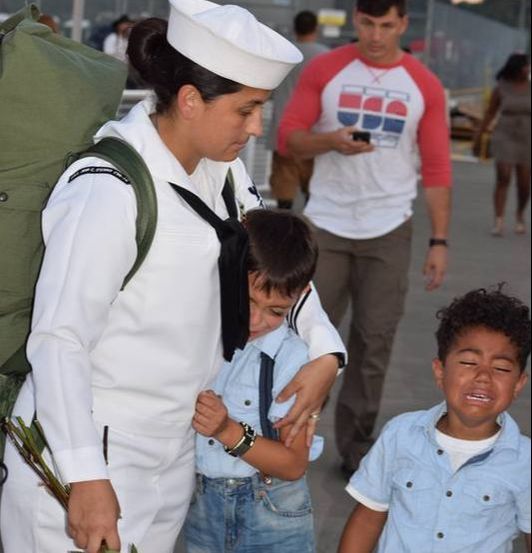Military Children and Stress |
Page 8 |
Military children experience more stress than most children do. For some this can be traumatic and extremely challenging and for others it can be no big deal. Often in the time frame surrounding deployment, relocation, and reunion; children begin showing behavioral challenges at school and home. Studies report that the bulk of behavioral issues that military children experience are related to anxiety, sleep disturbances, new phobias and increased physical ailments. The stronger the relationship with the remaining parent and other caregivers is, the fewer challenges are experienced.
Caregivers that work with military children can take steps to interact with and work with military children in real ways to help lessen their stress. Each child differs dramatically and the added challenges that military children experience will create unique situations. The most valuable and effective thing that a caregiver can do to help lessen a child's stress level is building an authentic relationship with them and their family.
|
Talk to them even about the bad things.
Let them begin the conversation and avoid responses such as “I’m so sorry” and changing the subject. Even a death in the family is this child’s new norm. Avoid changing the subject and making them feel as though it shouldn’t be talked about. Try to connect them with other military kids.
You cannot force a friendship but if there are children that are going through the same things they will all feel supported and encouraged. This is especially helpful for older military children and those that have recently relocated. Honor their families.
If they feel that they can share about their families and their experiences it helps to make them a part of the community at your center. Art, reading, field trips, and conversations are easy ways to honor military families. Building a community feel at your center gives a wealth of support to all children and especially military children. |
Course Navigation Menu
|
|



